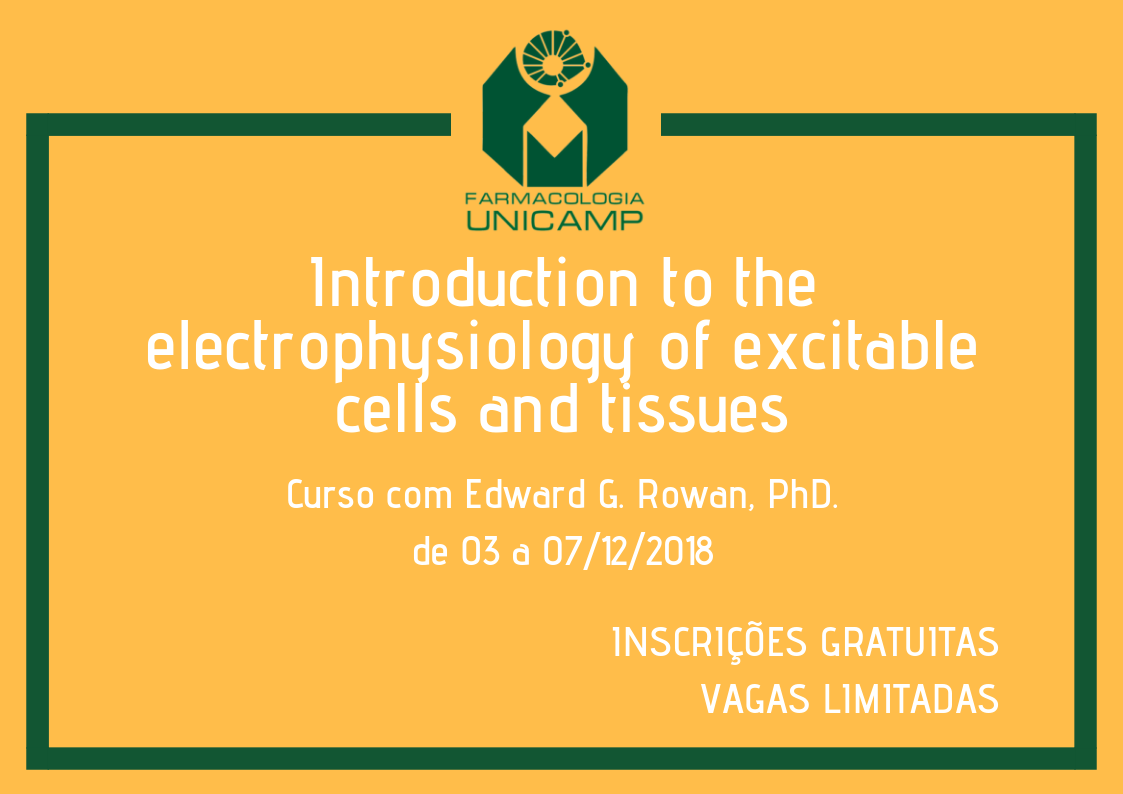
arrow_back FARMACOLOGIA | Curso "Introduction to the electrophysiology of excitable cells and tissues"
Dr. Edward G. Rowan
Strathclyde Institute of Pharmacy and Biomedical Sciences, University of Strathclyde, Glasgow, Scotland (UK)
O CURSO É GRATUITO.
Período: 03 a 07 de dezembro de 2018, das 9h às 12h e das 14h às 17h
Local: Departamento de Farmacologia, Faculdade de Ciências Médicas, Universidade Estadual de Campinas
Público-alvo: Estudantes de graduação (últimos anos), estudantes de pós-graduação e pesquisadores interessados em eletrofisiologia
Atenção: Este curso será inteiramente em inglês. Não haverá tradução simultânea.
Period: December 03-07 (2018), 09:00-12:00 h and 14:00-17:00 h
Place: Department of Pharmacology, Faculty of Medical Sciences (FCM), UNICAMP, Campinas, SP
Target audience: Advance undergraduate students, Post-graduate students and Researchers interested in electrophysiology
Course summary: This course will cover the basics of membrane potentials and the role of extracellular potassium in setting the membrane potential. We will also study the ionic basis of the action potential in order to understand the role that sodium channels have in regulating the excitability of neuronal and non-neuronal tissues. A nerve simulation will be used to examine the effects of potassium on excitability and to measure the changes in membrane potential in relation to potassium concentration. In addition, we will look at the effect of current injection on threshold and use various simulated drugs to derive effects on the amplitude and duration of the action potential. We will also explore other electrophysiological techniques and consider their advantages and disadvantages. The students can bring papers that we can discuss in order to gain insight into electrophysiological approaches that they may be interested in using. There will also be opportunities to discuss the students´ ongoing experiments in electrophysiology.
Attention: This course will be entirely in English. There will be no simultaneous translation
